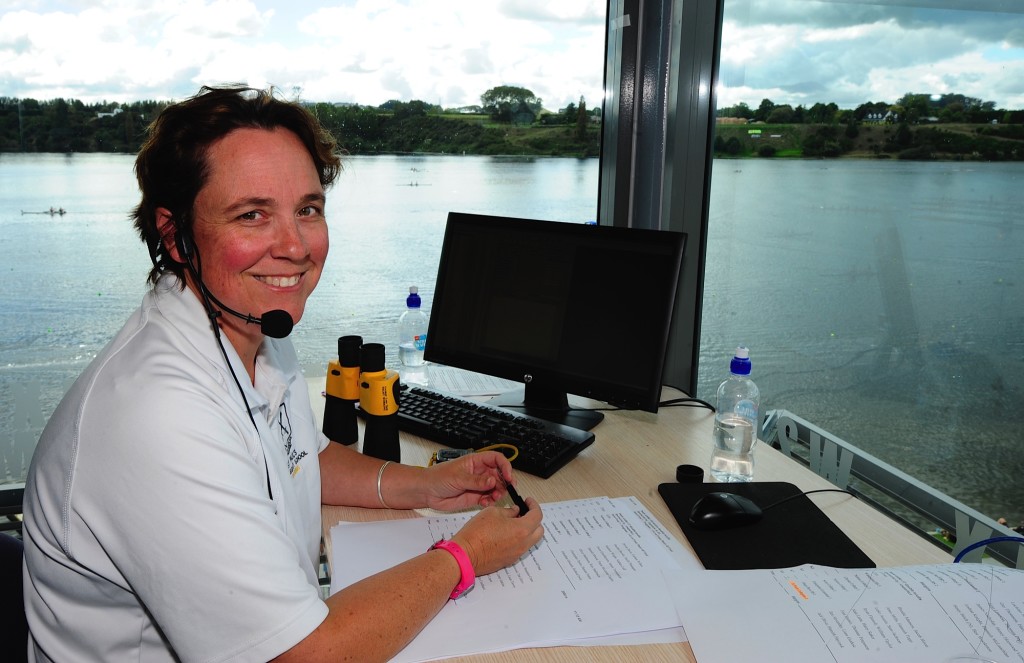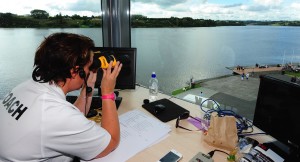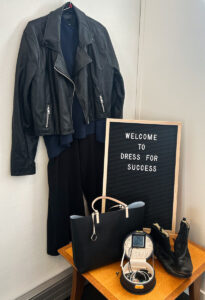Coach doubles as commentator
Kirsty Dunhill balances two jobs at Maadi: she’s a coach and a commentator
Kirsty Dunhill might not be a familiar face to everyone, but her voice will be – she’s the one you hear calling races from the Karapiro tower.
Being the main commentator is not an easy job. Dunhill credits her voice to the years of practice which has helped her voice hold up for long periods.
“Well, over the years you learn to practice that you can’t call all 2000m, and you have to pace it out, especially to the smaller boats that take longer to come down the course.
“So you have to pick and choose how they’re going, and give an update, and wait till they’re closing to the fast paces to the finish.”

Dunhill also talks about the breaks that are needed in a tough schedule like Maadi.
“It’s not too bad when it’s the weekend. But, a week-long regatta like the Maadi cup, it gets quite tough. So that’s why I’m giving a lot of breaks here.
“It’s important that I keep my voice fresh for tomorrow, and Saturday. Doing an hour and half of commentating, and two hours off is quite good.”
With Fridays, and Saturdays being the main days of the event, Dunhill’s schedule is n0t much different. The commentary is by three callers, and they rotate, and work their way through the events.
“If we feel, it’s getting hard, we take a break. We must call the finals, and we don’t wanna sound hoarse tomorrow.”

Dunhill uses sport binoculars that have greater magnification, but with the help of SkyTV coverage from Friday, her task will be easier. “We can commentate from the live feed instead of looking down the course.”
Dunhill points out that the standard at this year’s Maadi Cup has been incredibly high, particularly sculling. “Sculling this year has been phenomenal, and they are setting some fast times. The under 18 which is the oldest age group, and the U18 4+, which is the Springbok four, they set an unofficial record in one of the heat races. So the times are very fast.
“The standard of sculling, and coaching this year has been very good. We’re seeing some of the North Island medalists finishing third, and fourth.”
Dunhill can’t think of any major improvements that have to be made for next year’s competition. “I’m pretty happy at the moment, and I think they have paced out the races pretty well.
“The weather conditions have been perfect this week. I think it really helps when you have flat water.”
Dunhill also credits the officials, and thinks they have been phenomenal. “Every race over the last four days has come through on time.”
The weed has been a big talking story, as it caused some amount of delay on Monday. The officials had to delay two races to clear out the weed, and Dunhill thinks they were fair to do that.
Besides commentating, Dunhill is also a coach. She says it can be difficult. “It’s fine when the regattas aren’t on, as you have to do normal training. When you’re at the regatta here, the main priority has to be my crews, and them getting on the water.”
But she is willing to do two things at the same time, and the first thing she does is look at the day sheet, and look at the times her crew is racing. She works her way through backwards from that point.
“I need to be with my crew an hour and half beforehand. For that hour and half or so, I’m not available for commentating.”
She does her first shift in the morning, and then she goes with her crew, and then she’s free for the afternoon. “I usually block two hours, just to be with them, and to get them ready, and put them on water. The commentating comes second to that.”




